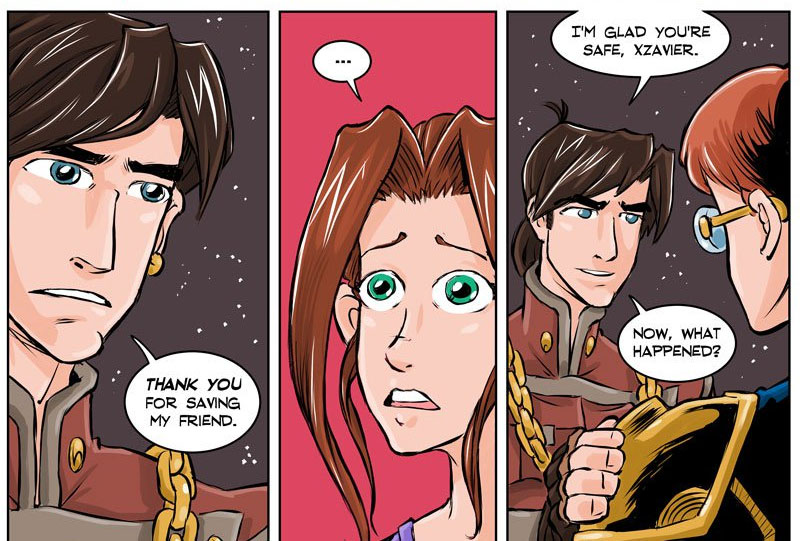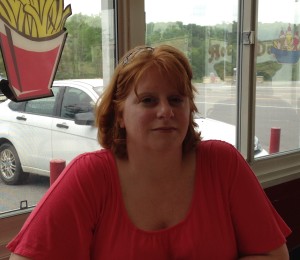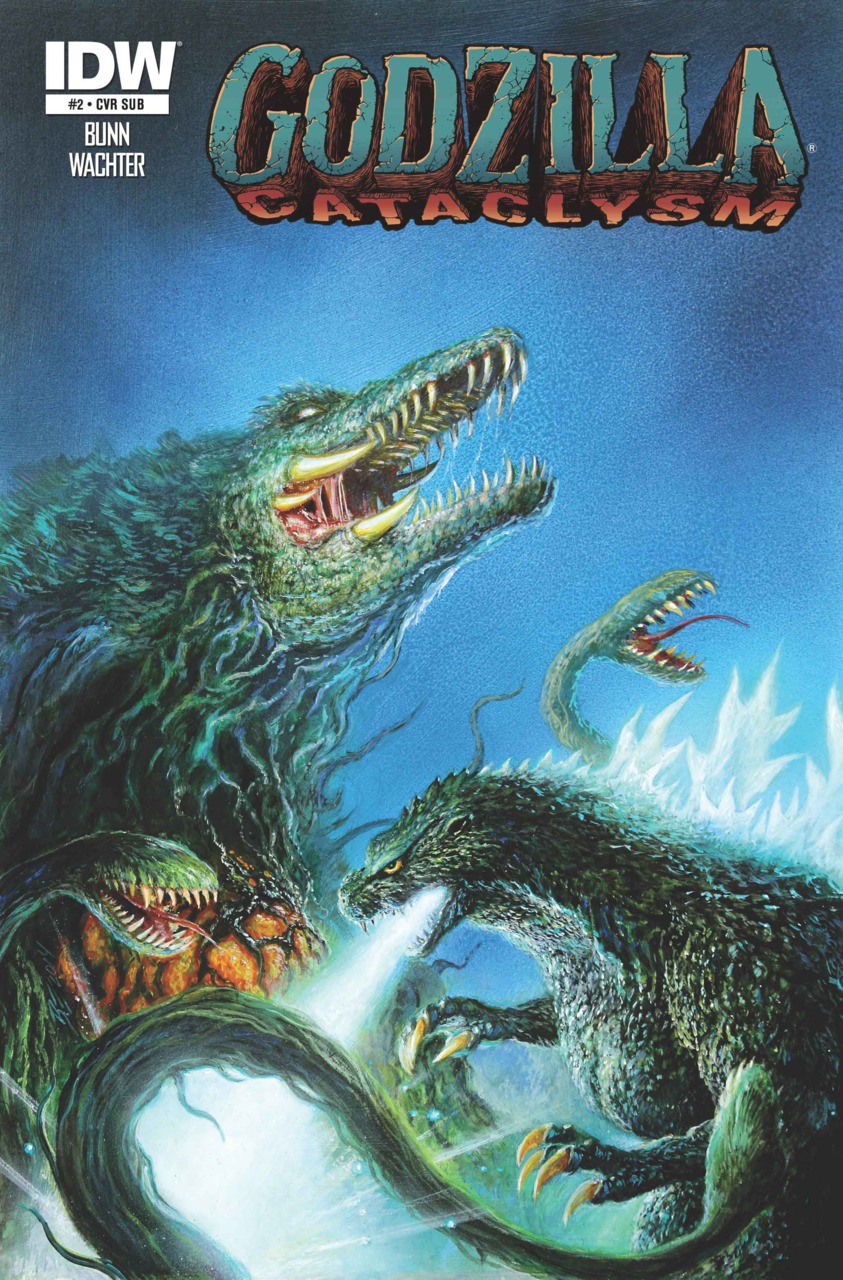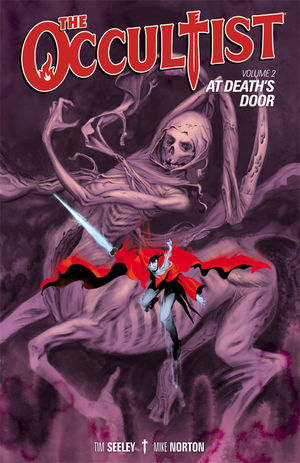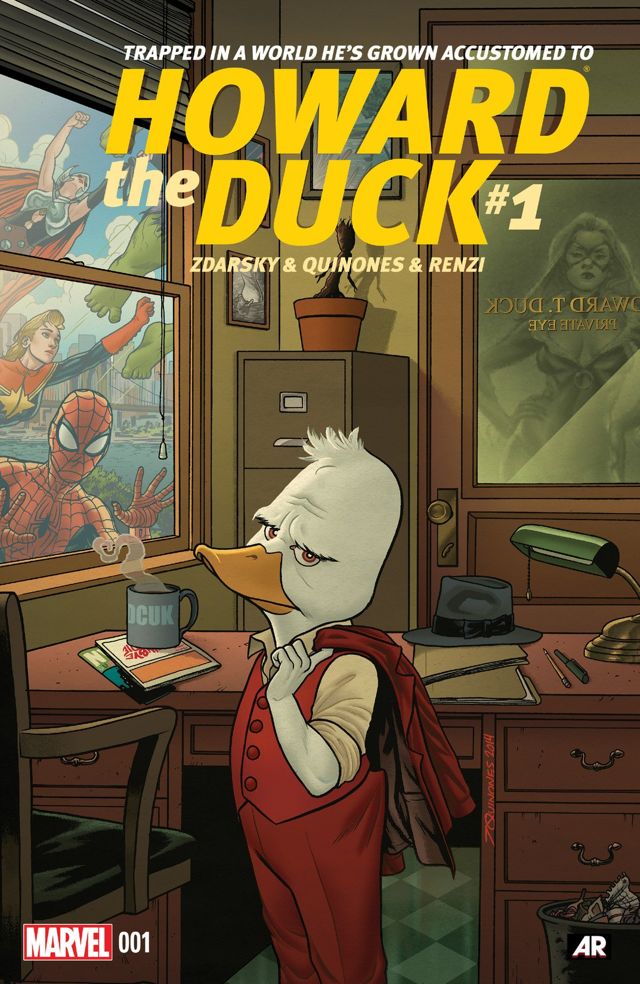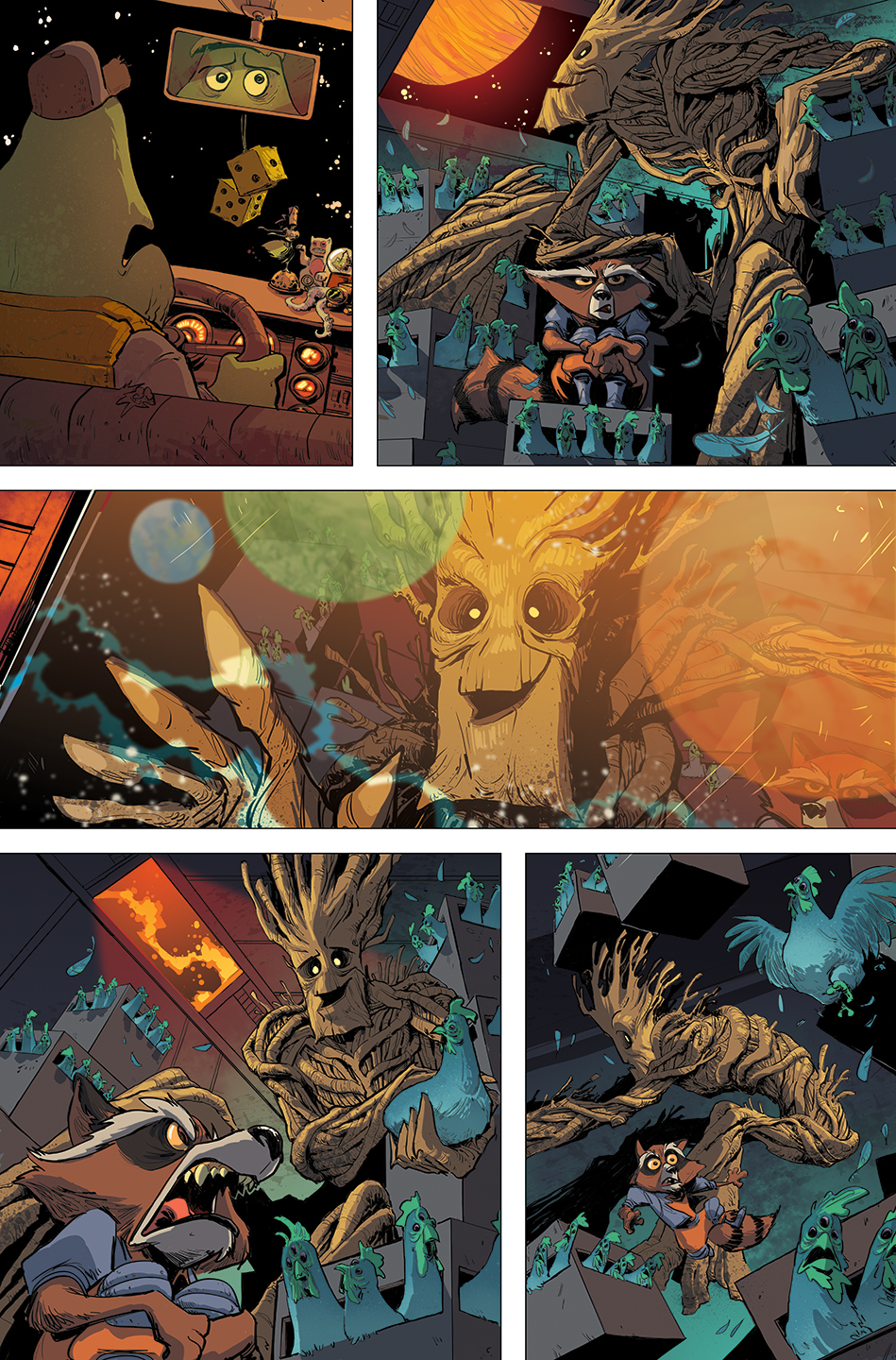Shadowbinders webcomic Writer and Co-Creator Kambrea Pratt approaches the industry with a degree in art education. Prior to working on Shadowbinders, Pratt helped her husband color Disney comics through Gemstone Publishing. Over the years, she’s learned a great deal about comic book creation, how women are represented in comics, and what it’s like to be a woman in the comic book publishing industry.
Tara M. Clapper: How did you find your way into comic book creation versus other forms of illustration or writing? Did you read comics and graphic novels when you were young?
Kambrea Pratt: Actually, I found my way into comics via my husband. He was already working on comic projects when I met him and that is how I was introduced to the world of comics.
I did not read comics growing up, unless you count the small comics that came with the She-Ra dolls in the ’80s. I did love to read books. I would spend my weekends reading books for hours. Then, when I was older I did get into manga.
My influences were more from film and anime, or the books I read. I also had the tendency to daydream about stories quite a bit.
TMC: When did you first realize that most comic book creators aren’t women? Did it bother you? If so, how did you overcome it?
KP: I didn’t, at least not for a while. From the beginning I knew other female creators and there were a lot of them. Maybe because webcomics seem to be different and there are a lot of fantastic female creators as well as male ones. It didn’t occur to me there were issues.
As I got into comics more I started to notice the issue. There are a couple of big publishers that seem to be the worst about it. Throw in the way women are portrayed in comics and I can see why people are upset about it.
I do want to mention that there are several comic publishers and book publishers that have many female creators and those creators do very well. It isn’t every publisher, thank goodness!
TMC: Have you encountered a lot of sexism regarding women creating comics as well as female characters? If so, where do you find them – at conventions, online etc?
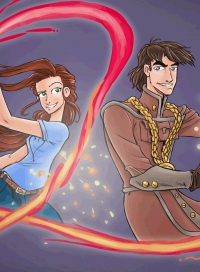
Credits (Shadowbinders written by Kambrea Pratt, Art by Thomas Pratt. The newest pages are colored by Brittany Peer)
KP: I have never had a man make a sexist remark towards me and we know a lot of people in both digital and web. I have had issues in two areas.
1. On some online groups. I noticed that when some individuals would post a question that I had experience in, I would answer, but I would be talked over by that individual or other men answering the question. Sometimes I sincerely did have a good answer or experience, but it would be overlooked. It annoys me greatly! I can’t 100% say it is because of gender or if it is because of something else. But I have seen it happen often to other female creators.
2. Before I started creating comics I went to a convention in a mini skirt and tight shirt. Unfortunately, I was physically grabbed and “hit on.” This was a while back and thankfully, more females are cosplaying and making it okay to wear a dang skirt to a con! It almost put me off of comics, but I changed my mind.
On a side note I do want so point out that not all sexism is men against women or vice versa, I have seen some snark out of female creators/fans towards other female creators/fans. I myself have run into it. I have gotten comments for being a mom and for not being “feminist” enough. I think it is crap. Look, we are all in this together. If we have enough problems in the industry how is slapping each other down going to make it any better or easier?
TMC: What’s the most effective way to combat sexism in a male-dominated field?
KP: Do good work and keep pushing forward. People will notice regardless of your gender. I think that is what is going on now.
TMC: How have things changed since you started making comics?
KP: I think there is a lot more content out there now. Webcomics/digital comics have exploded and there are probably double or triple the amount out there. I think that comic companies are tailoring more content and merchandise to women. I also think the comics industry is beginning to realize there is a gender bias and they are making some attempts to fix it.
TMC: What is your advice for anyone wanting to get a start in comic book creation?
KP: Just do it. If you wait until you are “good enough” you will never start. The only way you will get “good enough” is by doing it.
TMC: Do you make comics as a full-time job, or part-time? What are realistic expectations for people in the field?
KP: I work on comics part-time, but we are trying to transition to full-time. Working on that right now.
Realistic expectations. I guess that depends on what you are doing. From a webcomic perspective I can tell you that you are not going to put your comic up tomorrow and instantly have 1 million readers. It takes a lot of work to produce and grow a comic. One thing you can do is find people who you respect or admire and watch how they work. Ask questions. But remember that everyone is different and things change quickly so what worked for one person might now work for you. Don’t be afraid to fail. If you fail so what? Just learn and try again. Don’t give up!
TMC: What has been your biggest challenge as a comic book creator?
KP: My biggest challenge has been to not get discouraged. Comics and webcomics can be a hard business. I had to learn to be patient and I also had to develop a “thicker skin.”
TMC: Women are a quickly growing demographic when it comes to comic book readership and comic book movie viewership. Why now – and how do we keep the momentum going?
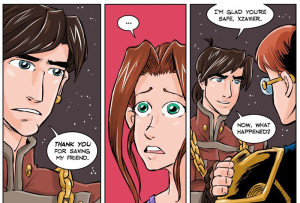
Credits (Shadowbinders written by Kambrea Pratt, Art by Thomas Pratt. The newest pages are colored by Brittany Peer)
KP: I think the movies are helping. They have these great movies that appeal to both men and women and I think that is bringing women back to comics. There have always been women, who loved comics even when many didn’t, but a long time ago women read comics. Once upon a time more women read comics than men. Then somehow the female demographic became less important and females were portrayed as either a stereotype or an object in the story. Sadly female creators were always a small group, even when female readership was high, but that is changing.
I think that finally people are starting to grasp that women spend money too, and women like to read too and maybe alienating 1/2 of your potential audience is a bad idea. It is almost like a Renaissance after the Dark Ages. I hope it continues.
As to how do we keep it going? Share what you love with other women. Encourage other women to draw and tell stories. Do your best in everything you do. Don’t let there be an excuse that “she wasn’t as good as he was.” I think if we just work hard and don’t back down the industry will have no choice but to consider women in both content and creation.
Check out the Shadowbinders webcomic and order Shadowbinders merch. Find Shadowbinders on Facebook and Twitter and support them on Patreon.

